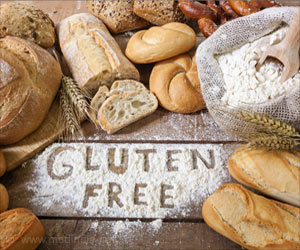But a friend of his loved the sport. The two were watching Djokovic at the 2010 Australian Open, where he took several medical breaks. The commentators attributed that to asthma.
“It’s not asthma,” Dr Cetojevic said, or words to that effect.
After some meetings and tests, Djokovic discovered he had celiac allergy. The son of a couple who ran a pizza restaurant, Djokovic eliminated all gluten from his diet.
Djokovic was asked to hold his arm up, after which someone tried to push it down. It was difficult. He was asked to do the same again, but with a slice of bread against his stomach. This time, his raised arm felt weak and could be pushed down quite easily. Bread was clearly his kryptonite.
Dr Cetojevic, has stressed that the overhauling of Djokovic had a lot more to it beyond just gluten. It involved mindfulness, practising kindness towards self, feeling gratitude and breathing right.
Last year, Djokovic said that molecules in water react “to our emotions, to what is being said.” But they have brought consistent results over a decade.
In 2011, Djokovic was virtually unbeatable. Leaner, faster and fresher, he won three majors, and 70 matches in all while losing only six. Djokovic beat Rafael Nadal in a five-hour, 53-minute slugfest in the Australian Open final.
From the year 2015 onwards he has been almost unstoppable again. If fit, he is certain to stand atop the sport’s history with the highest number of major titles.
Currently, he is one short of Roger Federer and Nadal. This year, he also has a chance to become the first winner of the Grand Slam – winning all four big titles in a year – since Rod Laver in 1969.
As Djokovic flourished, gluten-free diets and foods also became more popular. Many did not even know such a condition existed till they read about Djokovic’s experience. In 2019, the global gluten-free products market was estimated to be worth $22 billion, according to some reports.
And as per Mordor Intelligence, India is the second fastest growing market for gluten-free foods and beverages in Asia-Pacific, after China.
A right diet leads to better digestion. And better intestines lead to better lungs, something that is helpful to know in times of COVID-19.
“The large intestines and the lungs balance each other,” Dr Cetojevic said in an interview posted on his website, drigor.org. “Changing Djokovic’s diet was the most necessary thing to do; it’s like changing the oil in a car. We had to find the right fuel to support rather than to further toxify his body.
When the body is unable to eliminate waste products through stool because too many toxins have built up, the normal function of the mucous membranes on the walls of the large intestine is compromised, allowing toxins to be absorbed into the circulating blood.”
Further on, Dr Cetojevic said, “Since the lungs are paired with the intestines, it’s the lungs that next try to help eliminate these toxins through the production of excess mucus. This compromises the lungs’ main function – to breathe properly and absorb the maximum amount of oxygen.”
And this is what the man himself, Djokovic, has said about giving a gluten-less menu a try, after checking with your doctor, of course.
“Give it two weeks. That’s what I suggest,” Djokovic wrote in his book ‘Serve to Win’. “Avoid gluten for fourteen days and see how you feel. Then, on day fifteen, have some bread and see what happens.
I’ve managed to stay gluten-free and eat a healthy, balanced, satisfying diet that fuels a professional tennis career — and I probably have far less control over my schedule and where I eat than you do. You can take control over your diet, and your life.”
Source: Medindia



